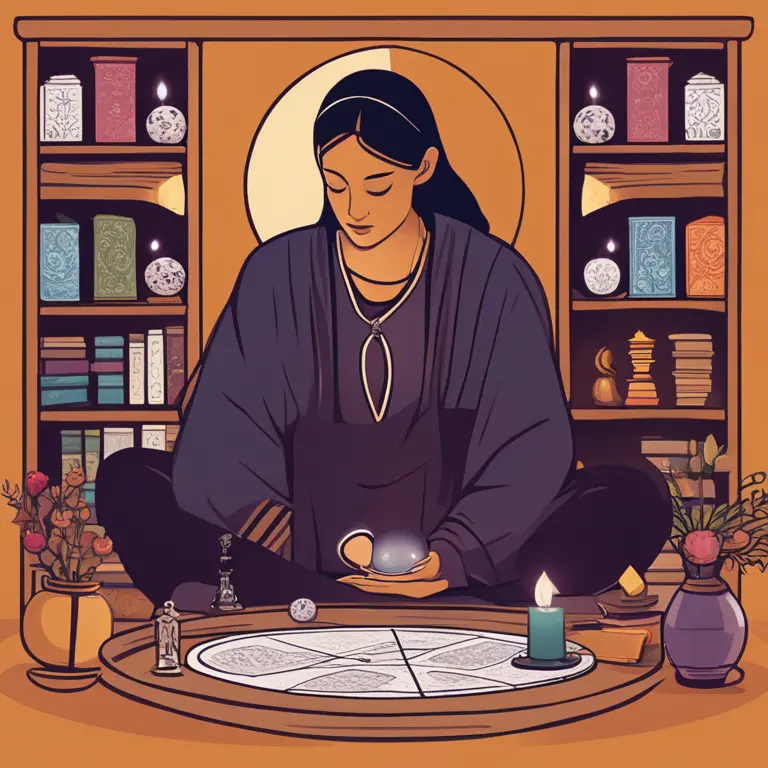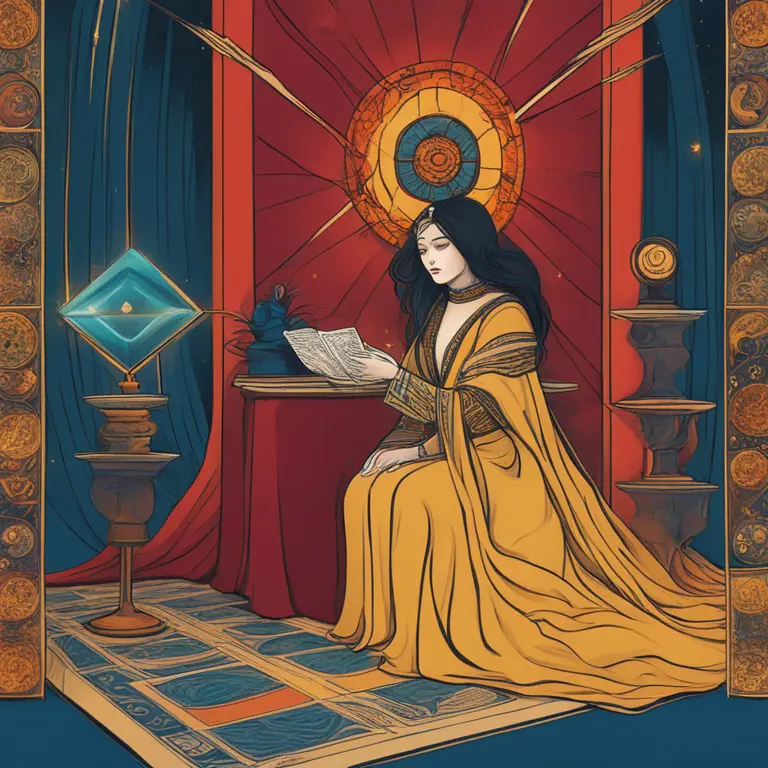
The Mystique of Tarot Card Readers
Tarot card reading is an ancient practice that has mystified and guided individuals for centuries. It is an art form where cards portraying symbolic imagery are used to gain insight into complex questions and life events. Who, then, are the interpreters of these enigmatic cards? Tarot card readers are individuals who have dedicated themselves to understanding the profound symbolism embedded within the tarot deck. They are often intuitive, empathetic, and possess a deep connection with the spiritual realm, using their skills to bridge the gap between the known and the unknown.

The Path of a Tarot Reader
Becoming a tarot reader is not merely a profession but a calling. Many tarot readers begin their journey with a personal experience that draws them to the cards. They often spend years studying the meanings of the 78 cards in a tarot deck, which include the 22 Major Arcana cards symbolizing life's karmic and spiritual lessons, and the 56 Minor Arcana cards reflecting daily trials and tribulations. A true tarot reader continually deepens their understanding of the cards, often integrating other mystical practices such as astrology or numerology into their readings.

Why Seek a Tarot Reading?
Individuals seek tarot readings for countless reasons. Some may be at a crossroads in life, searching for direction; others may seek confirmation or clarity about their feelings and experiences. In 2024 and beyond, the relevance of tarot readings continues as people strive to navigate a rapidly changing world. A skilled tarot reader can shine a light on hidden aspects of a situation, empower the seeker to make informed decisions, and provide comfort during uncertain times by connecting with the seeker's energy and channeling the universe's wisdom through the cards.
The Reading Process
A tarot reading typically begins with the querent, or the person seeking guidance, posing a question or expressing an area of life they need insight into. The tarot reader then shuffles the deck, sometimes allowing the querent to cut or shuffle it as well, thus transferring the querent's energy onto the cards. The reader then lays out the cards in a specific spread or pattern, each position within the spread offering a unique perspective on the querent's question. The interpretation of the cards is where the reader's expertise and intuition come into play, weaving together the narrative that the cards reveal.
Varieties of Tarot Readers
Not all tarot readers follow the same approach. Some may use the cards as a tool for psychological insight, while others may lean towards fortune-telling or spiritual guidance. No matter their approach, the value of a reading often lies in the meaningful conversation between the reader and the querent, and the personal reflections it provokes. As we move into 2024, the personal touch of a tarot reader will remain an essential element, despite any advancements in digital tarot applications or automated readings.
Choosing The Right Reader
When seeking a tarot reading, it's important to choose a reader whose style resonates with you. Some prefer a reader who is straightforward and analytical, while others might lean towards a reader with a more empathetic and nurturing approach. In recent years, due to technological advancements, online readings have become more prevalent. However, whether in person or virtual, the connection between the reader and the querent is key to a transformative tarot reading experience.
Published: 1/17/2024
Modified: 1/17/2024
More predictions
Come back here soon to learn more about yourself and your future


Can Tarot Cards Predict Your Love?
Discover the mystical connection between tarot readings and predicting love, from finding soulmates to navigating relationships through the arcane.


The Art of Tarot: Insights from the Cards
Delve into the mystic realm of tarot card reading and discover how this ancient practice can offer insights into your life's journey.


Can Tarot Cards Forecast Your Future?
Discover whether tarot cards hold the power to predict what's ahead, and how this mystical practice might guide your future choices.